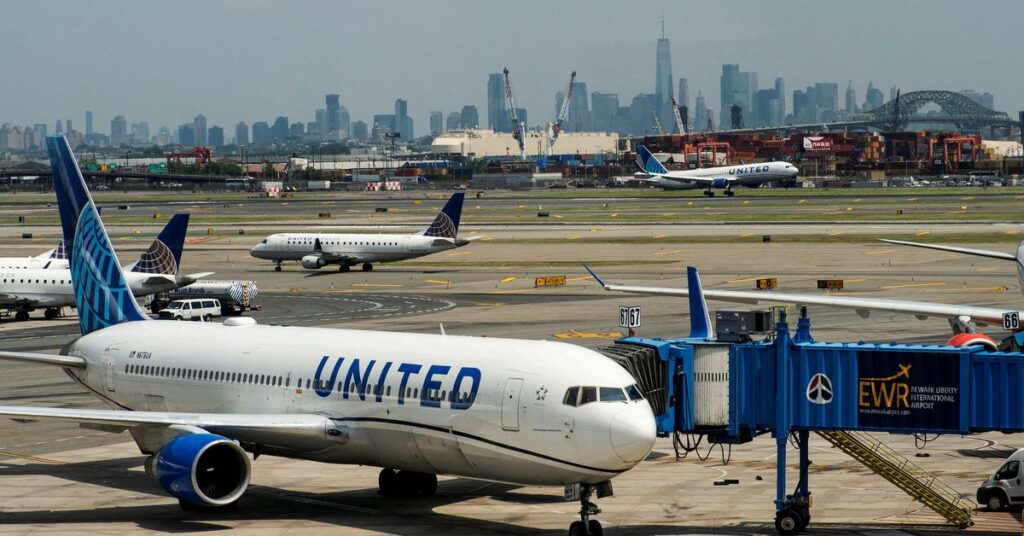CHICAGO, July 15 (Reuters) – United Airlines (UAL.O) and its pilots on Saturday reached a labor agreement that will give the latter a significant pay increase, after the union rejected an earlier offer last year instead to seek even higher wages with pilots in short supply.
The pilots will get cumulative 34.5%-40.2% increase in pay raises in a new four-year contract, the Air Line Pilots Association (ALPA) said.
With fewer pilots, the group has been enjoying enhanced bargaining power. Consumers have kept up spending on travel even with inflation high, and the industry is short thousands of pilots.
ALPA represents about 14,000 pilots at the Chicago-based carrier. It said it reached an agreement in principle with United management, which includes substantial improvements to compensation, as well as advancements in quality of life, vacation, and other benefits.
“We’re pleased to have reached an agreement with ALPA,” United Airlines CEO Scott Kirby said. “The four-year agreement, once ratified, will deliver a meaningful pay raise and quality of life improvements for our pilots while putting the airline on track to achieve the incredible potential of our United Next strategy,” he added.
The deal comes months after pilots at Delta Air Lines (DAL.N) ratified a new contract that includes over $7 billion in cumulative increases in pay and benefits over four years.
Industry officials say Delta’s new contract has become a new benchmark for contract negotiations in North America. Rival American Airlines (AAL.O) in May also reached a labor deal.
United, Delta, American Airlines and Southwest Airlines (LUV.N) are estimated to hire about 8,000 pilots this year.
In the past two years, unions across the aerospace, construction, airline and rail industries have rebuffed initial offers from management, seeking higher wages in a tight labor market.
United pilots turned down a deal last year that included more than 14.5% in cumulative wage increases and enhanced overtime and training pay.
Analysts at Jefferies estimate the United States is short about 10,000 pilots. This supply-demand gap is projected to last until 2027.
Reporting by Rajesh Kumar Singh and Baranjot Kaur in Bengaluru
Editing by Nick Zieminski, Diane Craft and Aurora Ellis
: .


